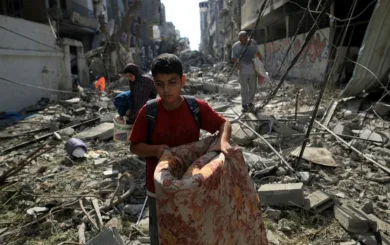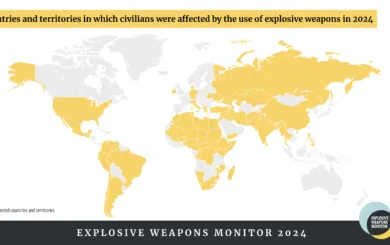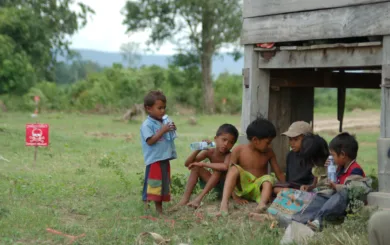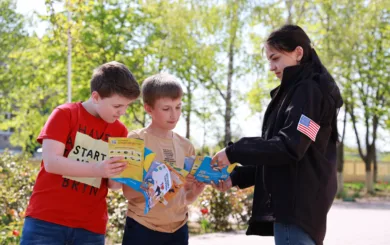In focus

Gaza: Starvation or gunfire - not a humanitarian response
Over 100 NGOs operating in Gaza call for immediate action to end the deadly Israeli distribution scheme (including the so-called Gaza Humanitarian Foundation) in Gaza, revert to the existing UN-led coordination mechanisms, and lift the Israeli government’s blockade on aid and commercial supplies.

Homophobia in the name of God
Conservative Christian groups in the United States are using the Bible to influence African politicians to implement harsh laws against the LGBTQ+ community. The result is a serious setback for human rights, quality of life, and the fight for equality.

World Environment Day: Tackling plastic pollution with local solutions
On World Environment Day, Norwegian People's Aid (NPA) highlight how our staff and local partners are taking action to reduce plastic waste — from biodegradable sandbags in Vietnam to youth-led initiatives in Lao PDR and Iraq.

Lives in ruins: New report finds alarming levels of civilian harm from the use of explosive weapons in 2024
Civilians continued to bear the brunt of bombing and shelling in towns and cities across the globe in 2024. Worldwide, civilians and civilian infrastructure were harmed by explosive weapons used by state and non-state actors in 74 countries and territories, a new report by the Explosive Weapons Monitor has revealed.

Norwegian People's Aid continues its work on mine clearance funded by the US authorities
The Norwegian People's Aid Board has decided that the organisation will continue to receive US funding for mine and explosive clearance, with new contract terms that place some restrictions on the diversity, equity and inclusion work that can be funded and carried out in these US-funded projects.

Helping Children in Ukraine Stay Safe in a Time of War
With US support, NPA helps children in Ukraine to recognize threats and stay safe